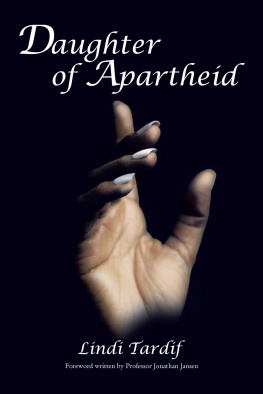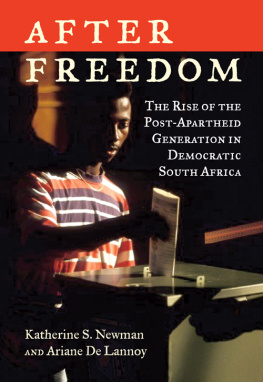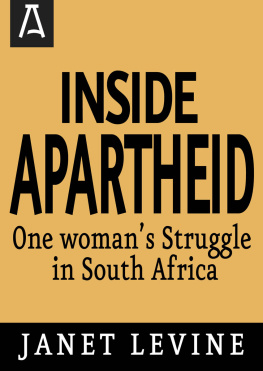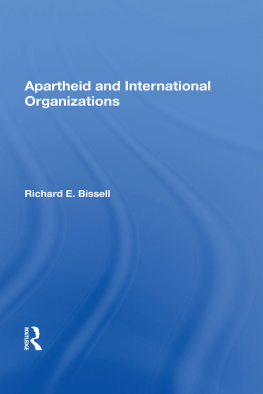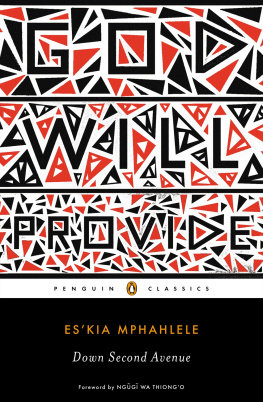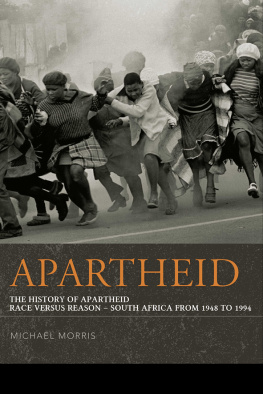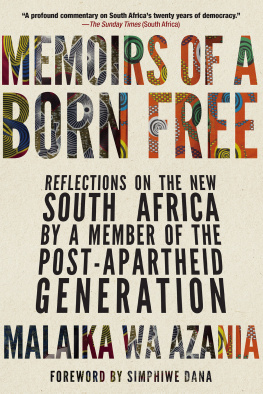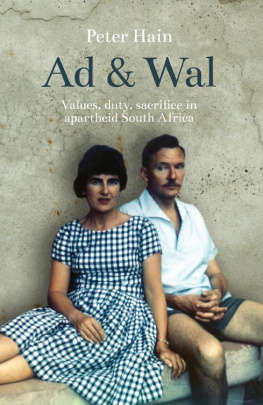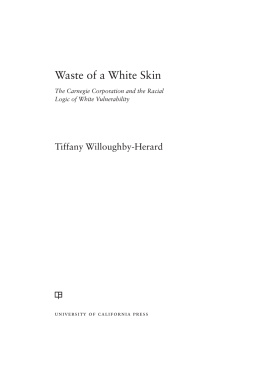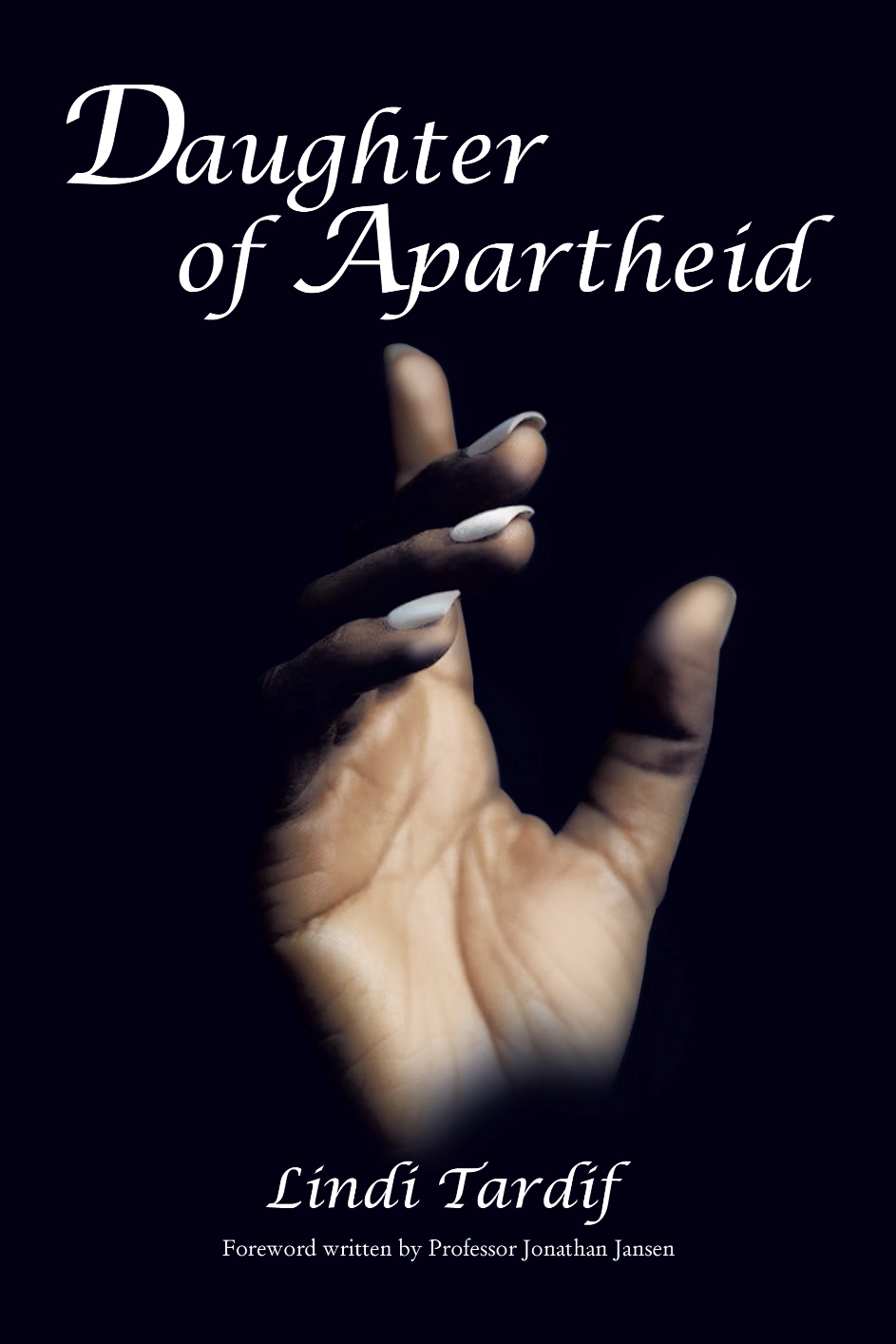Lindi Tardif tells an awesome story of breaking the mental chains of racist apartheid and building a life of freedom and meaning. Inspirational is an overused word, but in this case its the best way to describe her book.
Benjamin Pogrund
Recipient of the National Order of Ikhamanga in Silver; author of books about Robert Mangaliso Sobukwe, Nelson Mandela, the Press under apartheid, and Israel and apartheid; and former Deputy Editor, Rand Daily Mail, Johannesburg.
Lindis account of the evils of racism is moving and her comments on the way forward are compelling though I would implore us to keep in mind that we were created by God as one human race and that seeing ourselves as separate races keeps us trapped in the deception of racism.
Evangelist Alveda King
American activist; author of several books including King Truths: 21 Keys To Unlocking Your Spiritual Potential, America Return To God; and Executive Director, Civil Rights for the Unborn with Priests for Life.
Without grasping for hyperbole or sensationalism, Lindi Tardif has written about some of the most difficult circumstances of life in the most human of terms. She takes the reader through situations that would leave most people hardened, hateful, and bitter and then shows us that there is another way. It is the way of forgiveness and ultimately, the way of love. Love of life, love of family, love of her fellow people, and love of God. This book is the illumination of a path that is too frequently left unnoticed in the shadows and passed by. Lindi has a lot to say, and it is worth the time to read it, and then some.
Dale Font
Conservative Leader, Woodinville, Washington State.
Beyond a beautifully moving and deeply engaging account of family and identity and of race and reconciliation, in Daughter of Apartheid, Lindi adroitly navigates the ups and downs of her life as a woman of color, and deftly weaves richly-hued vignettes of some of her compatriots in and out of the primary narrative. Tracing her extraordinary journey from the dusty, apartheid-era townships of segregated South Africa to the shiny spires of corporate America, the book also provides a reflective must read at critical milieus in both these nations histories, serving as a thoughtful bridge between White and Black readers and those of every shade in between, and charting a profoundly practical course for both decision-makers and their diverse constituents alike toward the more perfect union that we are all beholden to. Her richly rewarding narrative ultimately serves as a call to action, challenging the reader to think more deeply and emboldening us to act courageously, moving us beyond fear and toward hope.
Sebastian Matthews
Board Director, Global Evergreen Alliance
D AUGHTER OF
A PARTHEID
D AUGHTER OF
A PARTHEID Lindi Tardif

2019 Lindi Tardif
Daughter of Apartheid
All rights reserved. No portion of this book may be reproduced, stored in a retrieval system, or transmitted in any form or by any meanselectronic, mechanical, photocopy, recording, scanning, or otherexcept for brief quotations in critical reviews or articles, without the prior written permission of the publisher.
Published in Nashville, Tennessee, by Elm Hill, an imprint of Thomas Nelson. Elm Hill and Thomas Nelson are registered trademarks of HarperCollins Christian Publishing, Inc.
Elm Hill titles may be purchased in bulk for educational, business, fund-raising, or sales promotional use. For information, please e-mail .
The author has tried to recreate events, locations, and conversations from her memories of them. The conversations are not written in a way that represents word-for-word transcripts. The author has instead retold them in a way that evokes the feeling and meaning of what was said and in all instances, the essence of the dialogue is accurate. Although the author has made every effort to ensure that the information in this book was correct at press time, the author does not assume and hereby disclaims any liability to any party for any loss, damage, or disruption caused by errors or omissions, whether such errors or omissions result from negligence, accident, or any other cause. The opinions expressed by the author represent her personal views and should not be ascribed to her employer; any individuals, corporations, and institutions named in this book; and any other person. The narrative of her friends, family members, and teachers should also not be ascribed to third parties.
Library of Congress Cataloging-in-Publication Data
Library of Congress Control Number: 2019933673
ISBN 978-1-400325269 (Paperback)
ISBN 978-1-400325276 (Hardbound)
ISBN 978-1-400325283 (eBook)
Information about External Hyperlinks in this ebook
Please note that footnotes in this ebook may contain hyperlinks to external websites as part of bibliographic citations. These hyperlinks have not been activated by the publisher, who cannot verify the accuracy of these links beyond the date of publication.
DEDICATION
To Amelia, Naledi, and Abraham: learn from my mistakes,
and whatever happens, please dont drop the baton.
Keep the light shining!
To my English teacher, the late Solly Ismail, who helped reinforce a
key lesson my mom tried to teach me, and to Herschel Alpert
and Michelle Garcia, my mentors and supporters in
the profession, thank you. You guys rock!
T ABLE OF C ONTENTS
F OREWORD
I n recent times there has been a sharp increase in published works by young South Africans, telling the stories of their lives under or after apartheid. The biographies of post-apartheid youth often tell the stories that came after with bitterness and stridency, such as Malaika Wa Azanias Memoirs of a Born Free or Rekgotsofetse Chikanes Breaking a Rainbow, Building a Nation. These are important books, for they give insight into the anger and anxieties of young South Africans born after Nelson Mandelas release from prison, who were children during the early years of democracy. Such works, moreover, allow us to measure the pulse of one segment of South African youth, on the cusp of becoming national leaders in politics and the professions.
There is, however, one major limitation with angry writingit is sharp on analysis but offers few options for a radically different society that recognizes the inherent value of all South Africans and the strategic importance of solidarity in dismantling the legacies of colonialism and apartheid. This is what is so different about Lindi Tardifs remarkable (though far too short) book, Daughter of Apartheid. Modestly titled, this important contribution to after-apartheid memoirs is exceptional in part because of its restraint in telling a personal story that is inevitably political, and in part because of the felt authority of the authors writing in sharing her life in narrative form.
Lindis life straddles two worlds. She lived under and after apartheid, and can therefore give an account of both disenfranchisement and democracy. She grew up in a Black township but attended one of the more progressive open schools of the apartheid era, Sacred Heart College in Observatory, Johannesburg. She lived in Soweto, the center of youth struggles in the 1970s, but now resides near the liberal city of Seattle, Washington, on the northwest coast of the United States of America. She was nurtured by a proud Black struggle family in Soweto, but married a White American partner. She became a South African citizen by birth but a patriotic American citizen by choice.

